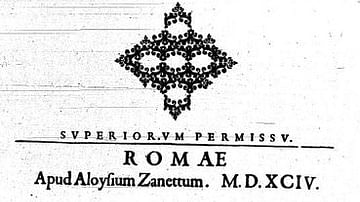Search
Search Results

Article
The Legend of Romulus
Despite allegedly founding Rome and being hailed a hero, Romulus’ legacy is complex and his biography is even disturbing at times. He was supposedly guilty of committing many terrible deeds that still make readers recoil, but according to...

Article
Wihio Tales
Wihio tales are the Cheyenne legends featuring the trickster figure Wihio, who appears, variously, as a wise man, fool, villain, or hero and is associated with the spider. Wihio Tales continue to be as popular with the Cheyenne today as they...

Article
Plato's Euthyphro: An Overlooked Comedy
Plato's Euthyphro is a Socratic dialogue on the concept of piety whose meaning and purpose continue to be debated. In reading the work only as a serious inquiry into the definition of an abstract concept, however, one is apt to miss the comical...

Article
The Death of Ur-Nammu
The Death of Ur-Nammu is a Sumerian lament over the passing of the king Ur-Nammu (r. 2047-2030 BCE), founder of the Third Dynasty of Ur, who was killed in battle fighting the Gutians in 2030 BCE. The poem is frequently cited for its depiction...

Article
Setna II: A Detailed Summary & Commentary
Setna II (also Setna Khaemaus and Si-Osire) is a work of ancient Egyptian literature from Roman Egypt (30 BCE - 646 CE) written in demotic script. It is part of a cycle of stories known as the Tales of Prince Setna featuring a character based...

Article
The Life of Aristippus in Diogenes Laertius
Aristippus of Cyrene (l. c. 435-356 BCE) was a hedonistic Greek philosopher who taught that the meaning of life was pleasure and that the pursuit of pleasure, therefore, was the most noble path one could pursue. Along with Plato, Xenophon...

Video
Episode 12: The Alamo Survivors
180 years ago, every Alamo defender lost his life. But not everyone who was in the Alamo died. Learn some stories of the folks who survived the battle and a little about the effect of the defeat on the government of the young Republic of...

Image
St. Sophia's Cathedral, Novgorod
St. Sophia's Cathedral, Novgorod, Russia. It was first built c. 1037 CE by the Kievan Rus king Yaroslav I (c. 1019-1054 CE)

Definition
Maya Religion
Maya religious beliefs are formed on the notion that virtually everything in the world contains k'uh, or sacredness. K'uh and k'uhul, similar terms which are used to explain the spirituality of all inanimate and animate things, describe the...

Definition
Mandate of Heaven
The Mandate of Heaven (Tianming), also known as Heaven's Mandate, was the divine source of authority and the right to rule of China's early kings and then emperors. The ancient god or divine force known as Heaven or Sky selected a particular...